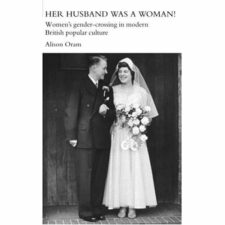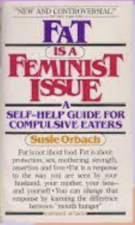I am the Great Granddaughter of Ruby Side Thompson. I inherited her forty-three diaries that span from 1909–1969. They were passed down to my grandmother, Ruth Ferris Thompson who was married to Ruby’s son, John Thompson. Ruby’s Diaries had several ownership transfers and were eventually passed down to me. I intend to pass them down another generation to my daughters. She left me Ruby’s journals as she thought I would be the most inclined to preserve and share them with anyone that was interested. Recently I published the World War II diaries as I felt that they were such an important part of a history that will soon be forgotten if not remembered and shared with the world.
Ruby Alice Side Thompson was born in England in 1884. Ruby grew up during a time when education was just beginning to be encouraged for both upper and middle class women. Women were seeking new opportunities and equality. During the late 1890’s, Ruby explored many radical political ideas of London, England. She met many famous people including the writers George Bernard Shaw and William Butler Yeats. The moth and the star: a biography of Virginia Woolf was written by Ruby’s sister Aileen Pippett. Ruby loved to read and always dreamed of writing famous novels. Ruby was not able to express her opinions or feelings about either the war or her unsatisfactory marriage to Ted, except in the privacy of her diary. Being able to do so was her saving grace. Many of the things she says in today’s world would be considered politically incorrect.
Here are some excerpts from volume 2 of the war diaries.
Wednesday, January 1, 1941
It was another quiet night due to bad weather. This afternoon the weather is clearing, so I expect we shall have the raiders again tonight. Ted is cranky. Year-end bills, I suppose. This is laundry day. Our wash goes to the laundry every two weeks, and is collected on alternate Wednesdays. After dinner today when Ted descended from the bathroom, where, of course, he had found clean towels, he asked, “How long were those towels in the bathroom?” (Meaning those I had taken away). “Two weeks,” I replied. “But that one behind the door; that one wasn’t dirty”. “It’s been there two weeks anyhow.” “But it wasn’t dirty. I haven’t had so many baths. Why send it? Is it just your lust to spend money?” “Not at all. The towel was soiled. I’ve used it, you’ve used it, it hung there a fortnight, and it was time it went to the wash.” “Time has got nothing to do with it. The question is was it dirty?” “Yes, it was,” I said, and added no more. I thought, what a man! What a petty fellow! Fancy bothering about the wash. The cost of laundering a towel is two pence. Why interface in such household trifles? He’s an extraordinary man, but Oh, how tiresome! I was interrupted here by the arrival of Miss Coppen, so I have had a good chin with her and am feeling tons better. One of the greatest treats in the world is intelligent conversation.
Thursday, January 2, 1941
It is very cold, and a powdering of snow and a very noisy night last night again. At dinnertime Ted brought me in a letter, addressed simply to Mrs. Edward Thompson, Romford, England, which had been taken into him in the office, to be enquired about. It was for me, from Mrs. Slocum, in Roselle. It’s made me so happy I’m walking on air. She had heard of the news about Cuthie, through her Jimmie, via one of the Leech boys. Jimmie also wrote in a few lines, and sent me a snapshot of his boy, now in the U.S. Navy, on a destroyer. This made me brim over with tears. Here is one of the children I knew before he was born, now a sailor. Incredible. I was so excited, and so happy about everything. I sat down after clearing up lunch, and wrote back to Mrs. Slocum right away. Now I’m full to the brim with memories of Bayonne. Those were good years, the Bayonne years. The best years of my life were there in Bayonne.
Friday, January 3, 1941
Today is colder. The pail of water that is kept by the front door, and ready to douse an incendiary bomb, is a solid block of ice: also the rain water tank at the back of the house. Luckily the indoor pipes are not frozen. Ted is very cranky. I expect it’s the cold.
Saturday, January 4, 1941
It is even colder, and Ted even more sarcastic than usual. I’m laughing inside; he’s so silly. My ordered books did not arrive until this afternoon, and now I have only got two out of the three of them. “The Anatomy of Inspiration” is reported as out of print. I’m sorry. I particularly wanted that book. So what I have got, are, “Ideal Weight,” and Mrs. Hughes latest volume, “A London Family between the Wars.” From the library I have a good American novel to read: Chad Hanna, by W.D. Edmonds. It’s true Americana, about circus life, in the days before the Civil War. It is five hundred and twenty-four pages. So I’ve plenty of good reading now for two or three days. I’m full of dreams of America, both waking and sleeping. Mrs. Slocum’s letter plunged me right back home. Some day I’ll go back and live in Bayonne again, if Hitler doesn’t get me. Au-Revoir.
Monday, January 6, 1941
Bardia has fallen. The news was received in London late last night. Prisoners captured exceed twenty five thousand including six generals. To the Australians go the first honors, for they led the attack. The Italians are crumbling fast, making Hitler’s first broken prop. The axis is now wobbly. Hitler gave London another bombardment last night. The alert was given about six o’clock, and the all clear came just before midnight. We have not been told yet what damage they did last night.
We spent a very terrifying evening here in Romford. Edna Renacre was here to tea, and did not leave until ten-fifteen, afraid to start out. However, we think she must have got home in a fair lull, because the next big explosion did not come until eleven p.m. This house was shaken several times last night, so if it was caused by the bombs dropping in London, they must have been even worse than usual. Most of the week anyhow dynamiting has been going on in the city. The damaged buildings left standing after the fire raid of last Sunday were judged dangerous, and the Royal Engineers have been dynamiting the shells. What can be left in the city to destroy I don’t know. Hitler has vowed that he will raze London to the ground, and certainly he seems to be getting on with the job considerably. He doesn’t cow the Londoner. What he doesn’t understand is that the more he bombs and bullies and burns us the more we will resist him. Supposing he could bomb every city in Britain to rubble heaps, he still wouldn’t have beaten the British. The French surrendered Paris rather than have Paris destroyed. Maybe that’s French economy and carefulness. The English won’t surrender London. What if London is destroyed? Hitler can only destroy the bricks and stones. Like Rome and Athens, London is immortal: an immortal idea, which can never be destroyed. Once Hitler is destroyed, the form of our city can be built up again, and even fairer.
It is four-thirty p.m. and I am back from the doctor. I have lost another two pounds. This brings me down now to fourteen point nine stone. Dr Keighley told me of the damage in Romford last night, two houses down in Coms Street, a bomb behind the Westminster Bank, one in the Havana Car Park, one behind the Plaza, one in London Street; and this morning they got Brentwood Station. When I got back to the house I found Ted sitting here. He had not returned for lunch when I left, about two-fifteen. He told me there was an unexploded bomb in the office. I thought he was joking, but it’s true. I burst out laughing. So did Ted. Neither of us are the least bit sorry for old Herbert. I think we both feel that whatever misfortunes befall him he deserves them. Ted remarked, “And he hasn’t even finished with the havoc from the other bomb yet!” Yes, we had a real good laugh at old Bert’s expense. Nobody, of course can get into the office. The bomb behind the Westminster bank has been safely taken away. Another alert has just sounded. They have been sounding all day today. Goodmazes has received two land mines. I wonder what sort of a night we shall have tonight! There’s a moon, and it’s perishing cold. I suppose Hitler is furious because of the fall of Bardia, so he’s relieving his temper by giving us an extra peppering. My God! When will this hellish war end?
Our children today have no idea what life was like then and what opportunities they have, that would never have been possible 70 years ago. World War II London Blitz Diary is being published on Amazon in 4 volumes. The 1st and 2nd volumes are published. The 3rd and 4th volumes will be published in 2012. World War II London Blitz Diary Volume 1 covers the years of 1939-1940. Volume Two covers 1941. The third and fourth diaries will cover the years 1942-1945.
Vicki Washuk is the Great-Granddaughter of Ruby Thompson. She has more extracts from her diaries at her blog: http://womanlondonblitz.blogspot.com/

